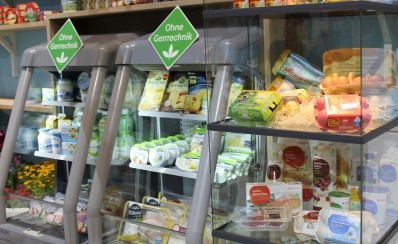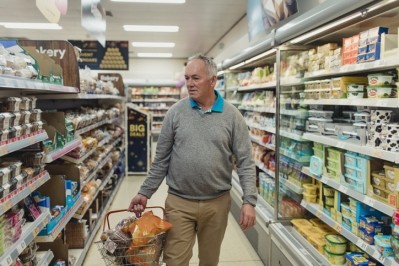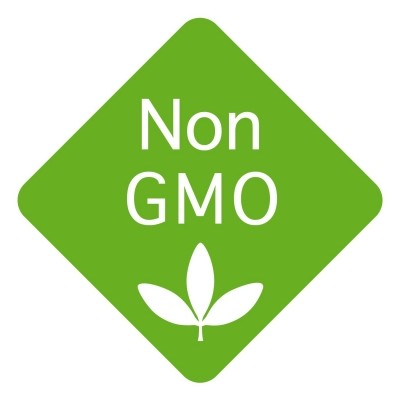Swedish dairy sector looks to phase out usage of GM free soy in feed

The Sweden farming industry has, generally, maintained a non-GM policy for the past few years.
However, Hilda Runsten, environmental and climate expert at Swedish dairy trade association, LRF Mjölk, told us dairy producers are questioning the continued reliance on the use of non-GM soy due to increasing cost pressures.
High premium attached to GM free soy
The higher premium associated with non-GM soy is proving a burden for the sector, and, in tandem, there are ever decreasing quantities of the GM-free variant every year, she said.
Her comments echo those of the German poultry farmers association - the ZDG.
In March, the German poultry sector withdrew its 14 year-long pledge to only use non-GM soybeans in poultry feed.
Katharina Wolfhard, a spokesperson for the ZDG, said the decision was not taken frivolously.
“By now, unfortunately, the voluntary and unique commitment of the German poultry industry in terms of GM free feed is no longer a matter of conviction, but has developed into a question of feasibility,” she added.
ZDG also said GM free soy supplies last year were heavily contaminated with conventional soy – some over the permitted tolerance threshold of 0.9% under EU labelling, undermining the legal position of the German poultry sector and putting it at risk of deceiving the consumer.
Runsten said contaminants in GM free soy are an issue for the Swedish dairy industry as well: “We need more knowledge about how to handle it.”
Retailer price pressure
Jochen Koester, a board member of the German Association of Food without Genetic Engineering (VLOG), in reaction to the comments made by the ZDG in March, said that:
“The question that needs to be asked is whether the major retailers, in their ambition to carry the GM free label on their food products, are paying the poultry and layer egg producers enough to ensure they are not being squeezed on costs as a result of the premium attached to certified GM."
Transitory supply issues
Augusto Freire, president of the ProTerra Foundation, a Dutch sustainability initiative to which GM free soy certifying body, Cert ID, is accredited, said the European feed industry did have legitimate concerns last year in terms of the high premium price attached to non-GM soy.
There were also shipment delivery delays of GM free soy due to logjams at the Brazilian terminals.
But Freire told this publication that those issues were only transitory and not ongoing trends.
And he expects the premium to reduce dramatically this year based on the volumes of non-GM soy available.
Abrange, the Brazilian association of Non-GMO grain producers, said, compared to last season, there will be at least 10% more GM free production this year.
Nevertheless, Runsten said: “Maybe the premium will decrease next year, but, in the longer term, non-GM soy probably will be more and more expensive.”
Consumer input
Claes Johansson, head of sustainable development at Swedish agri-group, Lantmännen, said the debate on migration to the use of non-GM soy in feed has included all livestock industry stakeholders in Sweden but has not, as yet, involved consumer representative groups.
“It would be difficult at this stage to gauge the reaction of consumers in Sweden to a move away from an industry pledge to use GM free soy in feed but as it is, 50% of beef meat consumed in Sweden is imported, with the majority of that produced using GM soy inputs,” he told FeedNavigator.com
Johansson doesn’t expect to see an immediate switch to GM soy in feed nor does he expect all livestock sectors to make the policy switch.
“I don’t think we will see a migration to GM soy usage across the board nor will it happen overnight. I think such change will be gradual.
A likely scenario will be that some producers will see a value in retaining a GM free feed policy and could exploit that in their marketing,” he said.
Runsten said there is not a united front, as such, from the Swedish dairy sector on whether it will migrate to GM soy in feed. She said it is up to the individual dairy company to make that decision.
At 10% of global soy production, Johansson said there is enough GM free soy around to cover the European feed demand.
The Swedish requirements for soybean meal are not massive compared to other markets - the livestock sector needs about 200,000 tons annually to meet its feed supplementation requirements.
Lantmännen sources its GM free soy from Norwegian supplier Denofa.
Solutions to logistic logjams
In March, Friere said that measures have been put in place to prevent future supply glitches in GM free soy.
“The combination of huge demand from China for GM soy and other crops from Brazil in the past few years and the ports infrastructure not keeping pace has resulted in restricted access to the major bulk terminals of Santos and Paranaguá, with subsequent hold-ups in ship berthing and loading.
With this logistics pressure, there were also mistakes made on the operational side at port loading and some procedures were skipped, leading to limited cross contamination of conventional soy with non-GM supplies," he said.
However, alternative ports such as Imbituba, Aratu, São Francisco do Sul, Ilhéus and Santarém are now being used to export GM free soy from Brazil, said Friere.
Furthermore, he said, more and more freight containers are being used to ship GM free soy, therefore bypassing the bulk terminals completely and reducing the contamination risk as the containers remain sealed until arrival at their feed compounder destination.
The hiring of more personnel at ports will ensure all hazard and critical control points are met in terms of avoiding contamination issues, he added.







